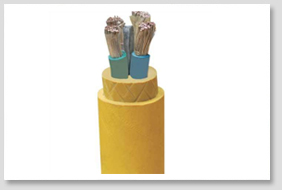Calcined kaolin is an anhydrous aluminium silicate produced by heating natural china clay to high temperatures in a kiln. This calcination process gives an increase in hardness and alters the particle shape of the kaolin. When calcination occurs at around 700°C, the dehydroxylation of the kaolin is complete, forming a partially crystalline metakaolin. Fully calcined products with an amorphous defect spinel structure are formed above 980°C. Fully calcined kaolin can be treated with silane to give a particle surface capable of chemically coupling with the polymer.
The heat treatment process makes calcined kaolins X-ray amorphous, but they substantially retain their kaolin shape and are used extensively in the pharmaceutical, power cable insulation, extruded profile and film industries.
Interfacial fusion during calcination decreases the aspect ratio and gives them an inert surface.
They also give excellent electrical insulation performance and low dielectric loss due to the lack of crystallinity .
Calcine Kaolin is used pharmaceutical rubber, profile extrusion, thermoplastic vulcanisates (TPV's), rubber cable, high quality rubber flooring, hose, polyurethane sealants, thermal barrier film, antiblock film, seals & gaskets, plasticised PVC cable.


